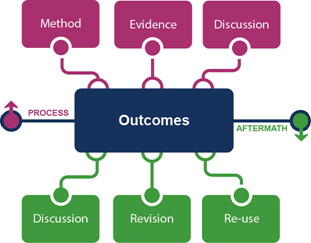We are in the midst of a dangerous era, where instant gratification is taking precedent over long term investment in scientific discovery. So much of what we are able to do today is based on basic research done decades ago. Rather than recognizing the incredible value of basic research, our culture is turning more and more toward demanding quick, short-term return on investment for any research project. This is shortsighted, and a subject we’ve covered before.
In the video below, Duke University researcher Sheila Patek talks about her fascinating research into mantis shrimp and trap-jaw ants, and how the basic lessons learned are so essential for driving progress.
Discussion
5 Thoughts on "Why Knowledge for The Pure Sake of Knowing is Good Enough to Justify Scientific Research"
Well posted. There’s always that unfortunate tinge of nature’s remarkable capabilities being identified as of value only if applicable to human ‘materielism’ or not at all. The wonder which gives the scientist her spark to discover and seek a deeper understanding of our world and our place in it are too often lost in our fragile human self regard.
Materialism pays the bills and certain conditions go with that. Anyone can pursue any scientific question they like, but if they ask the taxpayers to fund them then that is a constraint. Roughly half of the US Federal basic research budget goes to NIH for human health research. This is certainly materialistic and human centered, but also very sensible.
I have been reviewing one paper where the authors have taken five years to carefully come up with novel and applicable insights. Kahneman, in his book, notes that he had to break from their work in order to publish. Not so many years ago, society journals could delay when articles were slow to come in to fill an issue or a work was slow in being revised
Part of the “uselessness” seen by those in government is the pressure for accounting for funds appropriated. In fact, I believe that some government agencies base funding on counting publications rather than evaluating them. Academics for pub/perish have also been guilty of this.
Publishers are not immune when they have “n” journals with “x” issues/ volume to fill and revenue is based in part on downloads.
Good research is like fine wine. It takes time to mature and develop. Maybe studying left-handed monkey wrenches might seem trivial if one publishes, as the phrase goes, “before its time”.
Maybe there are reasons to support research in the humanities and social sciences- lessons potentially of more value to our survival than graphene or a drug?
I wonder if profit were not an element–in all the ways profit is applied (money, power, ego, and beyond)–if we might do this all so much better. Research is patient. Sometimes research goes in an undirected way. And the undirected path leads to accidental discovery that rescues lives and makes living better, all around. Surprises can save us, after all. Thank for you sharing and thus championing our better finding process and future.



